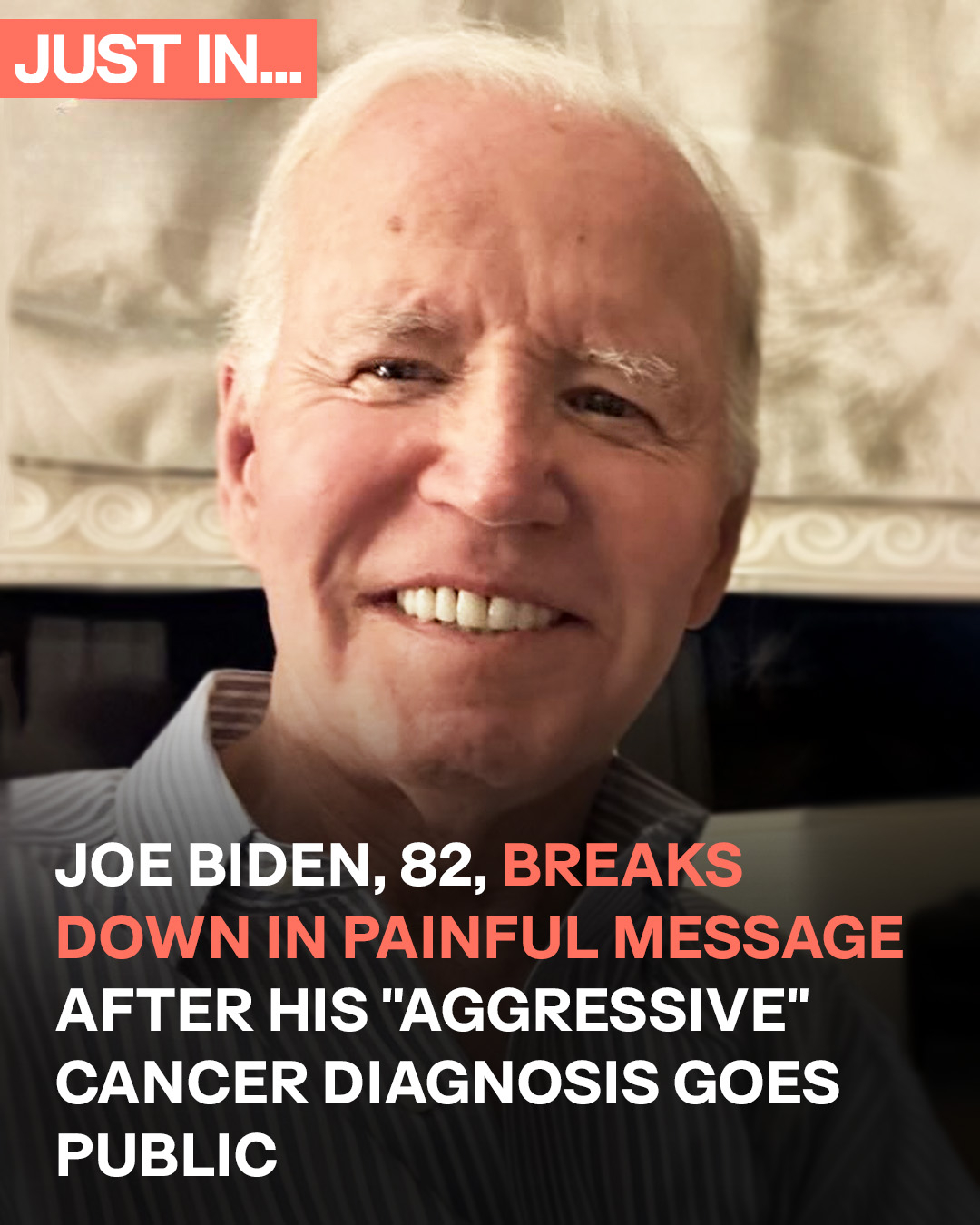On May 19, 2025, Joe Biden broke his silence regarding his prostate cancer diagnosis, choosing to share the news through a deeply personal and heartfelt social media post. In the photo, Biden appears alongside his wife, Jill, and their beloved cat, offering a moment of intimacy and strength amid a challenging time. The former president, now navigating a health crisis in the public eye, included a thoughtful message expressing gratitude for the support he has received and acknowledging the emotional toll of cancer. His words resonated with many Americans, as he spoke candidly about the fear and uncertainty that come with a diagnosis, while also emphasizing hope, resilience, and the importance of loved ones.
Biden’s announcement was met with an outpouring of support from the public. Thousands of individuals commented with prayers, messages of encouragement, and personal stories of their own struggles with cancer. Celebrities, political figures, and ordinary citizens alike expressed solidarity with the former president, many commending his bravery for being open about such a personal issue.
However, the compassionate tone that surrounded Biden’s message was quickly disrupted by Donald Trump Jr., who took to social media to cast doubt on the timing and transparency of the diagnosis. Reposting a medical expert’s statement that questioned when Biden’s condition was first discovered, Trump Jr. implied that the White House—or perhaps the Biden family—may have intentionally withheld the information. He went further by taking a swipe at Jill Biden, suggesting that she may have played a role in keeping the diagnosis secret. This insinuation was widely criticized as inappropriate, insensitive, and needlessly politicized.
Many public figures, including well-known author and political commentator Don Winslow, condemned Trump Jr.’s remarks. Winslow called the post “disgusting” and part of a long pattern of inflammatory and hurtful rhetoric. Numerous others echoed this sentiment, calling for a more respectful and humane approach to discussing someone’s health, particularly when it involves a life-threatening illness. While Trump Jr. had initially issued a more measured and respectful message, it was swiftly overshadowed by his accusatory follow-up, which sparked backlash and reignited conversations about civility and empathy in political discourse.
In a surprising turn, Donald Trump himself responded with a markedly different tone. Writing on his Truth Social platform, the former president offered his sympathies to Biden and wished him a full and speedy recovery. Trump’s comment was brief but gracious, signaling a rare moment of personal respect between two political rivals. Some observers noted that this response stood in stark contrast to his son’s behavior and may reflect a recognition of the gravity of the situation.
As Biden prepares to undergo treatment, the moment has sparked national reflection—not just on politics, but on how society handles vulnerability, illness, and dignity. The reaction to his diagnosis has become a litmus test for public empathy, revealing deep divides not only in ideology, but in the fundamental ways Americans choose to engage with one another during times of hardship.




